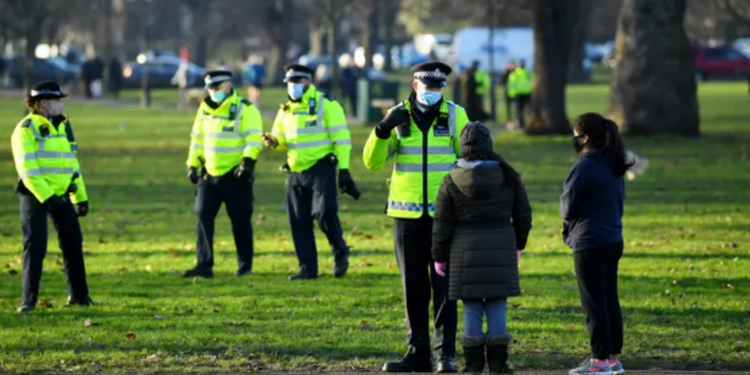More than 28,000 people in England and Wales have been convicted of breaches of COVID-19 regulations, despite the Government’s insistence that it never intended to criminalise people for minor infractions during the pandemic. The Guardian (yes, really) has more.
The convictions are for Covid-related offences, such as attendance at gatherings during lockdowns or arriving at airports without the proper evidence of a coronavirus test. Almost 16,000 of the convictions – or 55% – involved people under 30.
The figures, which were obtained by the Guardian through analysis of data from the Ministry of Justice, are considerably higher than any previous estimate.
They reveal how tens of thousands of mostly young people have been severely penalised for relatively minor infractions of Covid rules that have left them with damaging fines and, in many cases, criminal records.
Two years after restrictions were lifted, magistrates are continuing to work their way through a backlog of cases, with about 100 Covid-related cases being heard each month.
The average fine issued in magistrates courts last year was £6,000, although some people have been fined as much as £10,000.
The figures will add impetus to growing calls on the Government to halt the criminal prosecutions. Penelope Gibbs, the Director of the campaign group Transform Justice, said: “It is ridiculous that the courts are still prosecuting people for Covid offences. All outstanding Covid prosecutions should be cancelled immediately.”
The Government said it intended to treat most breaches of Covid regulations as civil infractions, introducing fines to deter behaviour that could spread the virus, rather than criminalising people.
The then Minister for Policing, Kit Malthouse, told the Justice Committee in 2021 that the on-the-spot fines for Covid breaches were a “psychological game” and “relatively light-touch”. Lord Bethell, then a minister at the health department, said the Government was “clamping down on… but not criminalising behaviour”.
Those statements appear at odds with the 28,000 convictions, which are understood to largely stem from people who initially received fixed-penalty notices. If a fine is contested – or left unpaid – it can result in magistrate judges ruling on the case without the defendant being present, under special fast-track measures.
Misunderstood or missed paperwork has led to people being found guilty and sentenced without their knowledge. Some say they had no idea they had been convicted in absentia until the bailiffs arrived.
The Guardian adopting an anti-lockdown tone, albeit as part of a dig at the Government – maybe there is hope for the Left after all.
Worth reading in full.












To join in with the discussion please make a donation to The Daily Sceptic.
Profanity and abuse will be removed and may lead to a permanent ban.